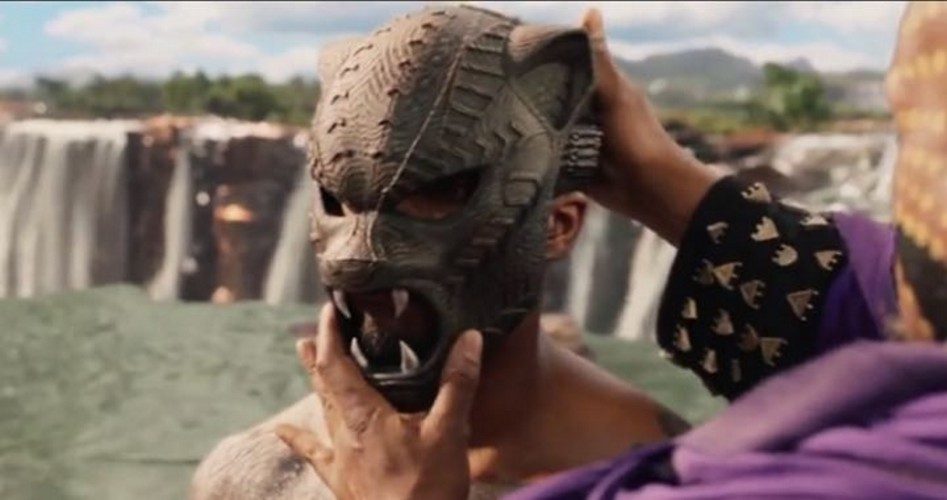
Black Panther, set to hit theaters on February 15, is a new Marvel superhero film based on a beloved minor Marvel universe character, and if the reviews are any indication, it will be highly successful at the box office. Unfortunately, the film has already been politicized by the Left, with some claiming that it failed to represent the LGBTQ community and others pondering whether it is appropriate for white children to wear Black Panther costumes and accessories.
According to the blog io9, Marvel missed “another easy opportunity for LGBTQ representation” by failing to feature a same-sex couple. In the comics, one of the Black Panther’s personal guards, Ayo, had a lesbian relationship, and critics are angry that the film did not portray the character this way. In fact, critics believe the filmmakers made a deliberate effort to remove all LGBTQ representation from the movie after a scene in which Ayo was depicted “swaying rhythmically back in formation” with another female member of the team named Okoye was cut from the movie.
Black Panther co-screenwriter Joe Robert Cole explains that though he does not recall the specific scene, it was likely cut because the relationship between Ayo and Okoye was not intended to be a significant storyline. He indicated that they were navigating between different character arcs.
But that’s not enough to satisfy the social justice warriors. Blog writer Charles Pulliam-Moore opines, “A romance between Okoye and Ayo is the sort of thing that easily could have been included in Black Panther with something as simple as a longing look and a bit of flirting kiss, but it looks like we’re going to have to wait even longer for the MCU’s [Marvel Cinematic Universe’s] films to catch up with the times.”
Perhaps the filmmakers simply understood that people are inundated enough with the LGBTQ agenda and would simply like to enjoy a movie without having it rammed down their throats.
And while some left-wing critics are angry over the film’s failure to advance the LGBTQ agenda, others are already pondering whether it is acceptable for white children to don Black Panther gear.
A New York Times article entitled “The Many Meanings of Black Panther’s Mask” explores whether the Black Panther costume will feature prominently this year on Halloween. While Black Panther star Sterling K. Brown states that he is ecstatic at the prospect of children, black and white, dressing up as the title character, others claim there may be a problem with white children dressing up as the black superhero.
“As parents, or even as the people creating costumes, we need to be very aware of what that says,” said Brigitte Vittrup, an associate professor of early childhood development and education at Texas Woman’s University. “There’s not a whole lot of black superheroes, so this is a really important thing, especially for black kids growing up.”
The Times notes that race is a central component of the Black Panther character, as he rules as the king of an African technological utopia known as Wakanda that has been untouched by European invaders and therefore exists without the influences of colonization and racism.
But even though Wakanda is untouched by racism, some believe that white children should be reminded of racism continually in a discussion of the Black Panther film.
Evan Narcisse, a senior writer for the blog io9, claims it’s difficult to explain to children what is so special about Wakanda without talking about racism and imperialism.
Professor Vittrup contends that white privilege makes it easy for white children to enjoy white superheros, while people of color are at a disadvantage when faced with a black superhero. “White people have the privilege of not constantly being reminded of their race in the United States, where white is the majority, whereas as a black person you don’t,” Ms. Vittrup said.
She claims parents do their children a disservice by not using films such as Black Panther as an opportunity to address racism and inequality. “Kids are not colorblind,” she said. “There’s a lot of structural inequality in our society, and kids are noticing that. By not mentioning it, by not talking about it, we’re essentially preserving the status quo.”
But as Narcisse observes, white children can and should see “there’s no difference between Captain America and Black Panther.” Unfortunately, conversations such as the ones Vittrup is advocating undermine that very notion. And she forgets that unless kids are taught to be racist, they are usually “colorblind,” and inequality in this country is mainly caused by past liberal “fixes” of racism. Welfare has made black poverty a generational thing, whereas before welfare black poverty dropped greatly each decade.
According to the movie ticketing site Fandango, Black Panther has set a record among Marvel films for the most advance tickets sold in a 24-hour period. It’s projected to make $165 million over Presidents’ Day weekend.
Image: Screenshot from official Black Panther preview page



